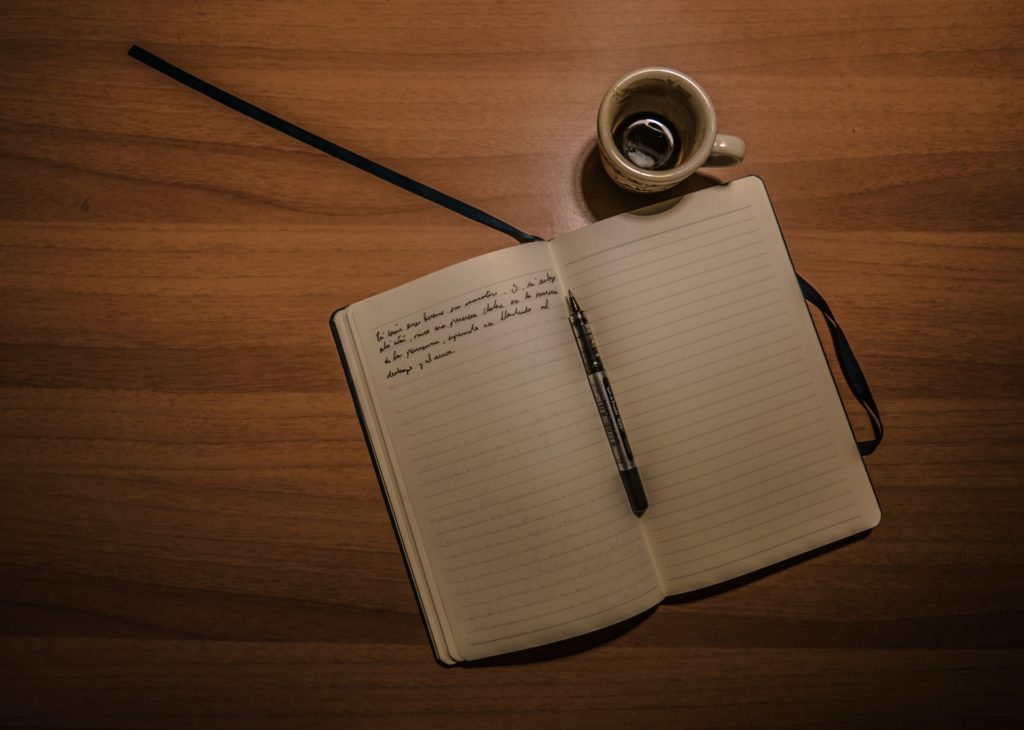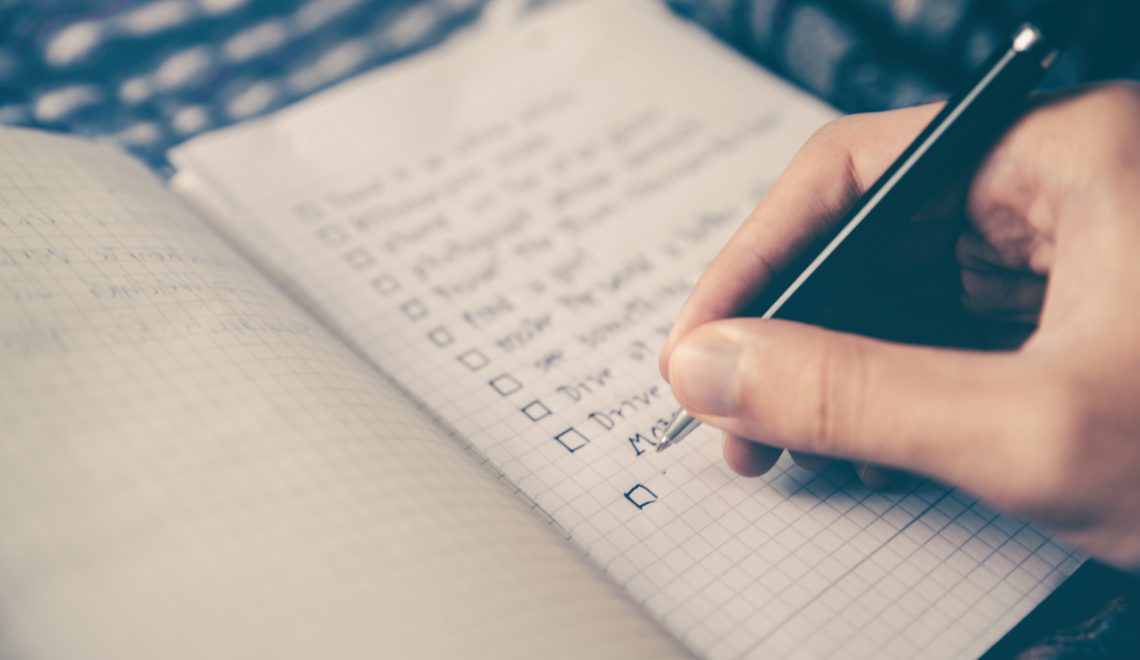

Most of you probably kept a dairy when you were a teenager, confessing your thoughts and struggles almost every day. I certainly have, albeit on-and-off for a lot of years. With all of your private feelings spilling out into one place, your diary can soon become a place of solace — one where you sure not to face any judgment, notwithstanding what you say, or write.
Interestingly, if the habit is kept up, journal keeping can really help clear your head and think things through. If you’re anything like me, you probably struggle with anxiety and overthinking. Well, I’m going to try journaling to get some of those nagging thoughts out.
Another reason why I personally would like to start journaling is because of time. Time blurs memories and I think it would be super cool to look at my journal 30 years from now and read exactly what I did on the 10th of July, 2019, for instance. It is more than likely that I would judge my younger self for thinking I’m all grown up when I don’t actually have a clue. But I look forward to that, if I can ever get disciplined enough to write in my journal everyday. Actually, you could also ask yourself hindsight questions like:
- How should I have reacted in hindsight?”
- How are things different now?
- What would I say to a younger version of myself?
- How would younger me react to present me?
- What have I learned that will help future me?
I also think that, as you get older, your outlook to journaling changes and evolves. More than spilling your guts, which is still great, you can just write about the events in your day. Plus, as teenagers we are much more affected by someone finding and reading our journal. Of course, an invasion of privacy of the sort would generally make one fret. But a total outburst is less likely.

Questions You Can Ask Yourself
Below are a few examples that you can add to and/or change based on the style of your writing and expression.
- What did I do today?
- Did something not go well?
- Is there something I could have done better or differently?
- What did I learn?
- What went well?
- Is there something I did well that I can continue doing?
- What one thing can I focus on this week?
- How am I feeling?
- Why am I feeling this way?
- What did I accomplish today/this week/this month?
Benefits of Journaling
Before we get into the benefits of journaling it is important to bear in mind that writing is merely one part of maintaining a healthy mental state. There are several other important elements involved in leading a healthy lifestyle. These include but are not limited to:
- Exercising
- Eating a healthy and balanced diet
- Getting sufficient amounts of sleep
- Taking time for yourself
Journal writing is one such element that could potentially help you improve your mental health. More than a teenage outlet, journaling has become a central part to the recently spreading self-care movement. To my surprise, I found that journaling has conclusive, scientific, benefits. Some of these include:
- Mindfulness
- Memory
- Communication Skills
However, an article in The New York Times states that further studies have also shown that keeping a journal can lead to better sleep, a stronger immune system, more self-confidence and a higher I.Q. Keeping a journal, according to a research study highlighted in this article,
…helps to organise an event in our mind, and make sense of trauma. When we do that, our working memory improves, since our brains are freed from the enormously taxing job of processing that experience, and we sleep better.This in turn improves our immune system and our moods; we go to work feeling refreshed, perform better and socialise more.
The New York Times,Hayley Phelan
Now to what degree journaling have the benefits listed above I suppose is variable, depending on the individual and his/her background. Nonetheless, knowing that there is evidence to show that journaling can have such conclusive health benefits nudges me to start immediately.
Journaling Can Help You Deal With Overwhelming Emotion
One of the ways to deal with any overwhelming emotion is to find a healthy way to express yourself. I think it is safe to say that journaling can help you find a healthy means of expression, a way to let out the negative and bring out the positive. Tracking any symptoms day-to-day so that you can recognise triggers and learn ways to better control them is one of the ways journaling could help you.
This makes a journal a helpful tool in managing your mental health. I would expect putting pen to paper should aid in understanding your feelings and thoughts more clearly, especially if you struggle with anxiety, depression, stress and the like. So, journaling can help you with at least three things:
- Managing your anxiety
- Coping with depression
- Reducing stress
Journaling Can Help Improve Your Mood and Outlook
The same article that I have mentioned above cites a 1988 study, outlined in a book called “Opening Up: The Healing Power of Expressing Emotion. The study asked random students to write about their experiences, trauma or just any topic for four continuous days. They then found that the students who talked about their trauma generally reported being in more positive moods than those who only wrote about random experiences or topics.
By expressing yourself, journaling can help you:
- Prioritise your fears, concerns and problems
- Identify negative patterns
- Recognise where your deep rooted issues come from and how to better manage them in your day-to-day life
- Grow and have a more positive outlook on yourself and life in general
Starting a Journal
The main issue that I face whenever I pick up journal writing is not that I don’t know what to say but rather that I don’t know where to start. Well, the first step regardless is the will to write. Because without a will to write, you simply won’t, at least not consistently. This is true of anything you want to do — you have to really want to do it. First, you must look within and find out whether you really want to keep a journal. If yes, then here are a few tips to help you get started.

1) How Often Should I Write Often?
Set aside a few minutes of your time solely for journal writing. Consistency will help you develop a habit. However, writing all the time is not necessary. In fact, at times writing all the time can cause unnecessary dwelling. Think of it more like an expressive outlet rather than a daily commitment you have to keep all the time.
Most of us may not be able to write everyday anyway. So you could create a schedule that fits in journal writing and set a reminder. It may take time at first to get into the habit but after a few entries it should begin to feel natural. If it’s not helping, go do something else. Seriously, go exercise or meet a friend for drinks or anything really…
2) What/How Should I Write?
Anything, really. There are many different approaches to how you should start and what you should say. Some encourage writing the first thing you in the morning, in a stream of consciousness style. Others encourage journaling about traumatic experiences. Choose the method best suited to you and start. It does not have to sound good, be funny, be grammatically accurate or some perceived version of unique. These entires are for you. So, if you’re not particularly worried about sounding good on paper, then don’t hesitate.
For some inspiration, you could journal using photographs, for instance. Choose a personal photo and use your journal to answer questions like “What do you feel when you look at these photos?” Maybe there is something you would like to express to the people in those photos.
You never know what you want to say until to start writing. In fact, you might uncover things about yourself you didn’t know — what you really want, for instance. Here are a number of different writing techniques you can use for journaling if you’re having trouble figuring out how to start.
3) What Tool Should I Use to Write?
Whatever method and format works best for you is fine — notebook, computer, actual journal therapy and some even use blogging. I personally prefer a notebook for its privacy and the actual feeling of writing.
Honestly, it doesn’t really matter. Typing and writing both have positive effects. Some people like to try different ways to journaling, switching between tools. If you’re a visual person, you can even do illustrations and doodles along side your entires. The thing that I find most helpful is frequency. You see, like with talking about your issues over and over again, writing about it gets taxing without wanting to take action. It’s like you get tired of feeling tired, if you know what I mean.
Will Journaling Help Me?
There is no way to answer this question conclusively unless you try journaling yourself. If it doesn’t work, it doesn’t work. You’re not going to lose anything by trying. From my experience with journaling, I know that I was able to become clearer on a lot of things. It was like parts of my mind were in the shadows and now there was light one them. Of course, I do not think journaling is a panacea. But it could help you sort out your thoughts and feelings so that you can take necessary action to better your life and mental state, if that’s what you need. A quick google search on journaling with show that a lot of people have found it helpful in the long run. However, everyone is different, which is why there is no conclusive way to answer this question.
Honestly, self-care comes in many different forms and is fundamentally individualistic. If you doubt this, just read this article on self-care with short pieces written by a bunch of different people on how they see self-care. So if journaling is not it for you, don’t stress — some people like hanging upside down to relieve stress. Not kidding. Seriously, read the article on self-care.
Journaling about your finances not helping? Don’t worry! Download StuCred now and ease your financial burden.
Tags- Journal Writing, how to write a journal article, what to write in a journal diary, interesting things to write in a diary









